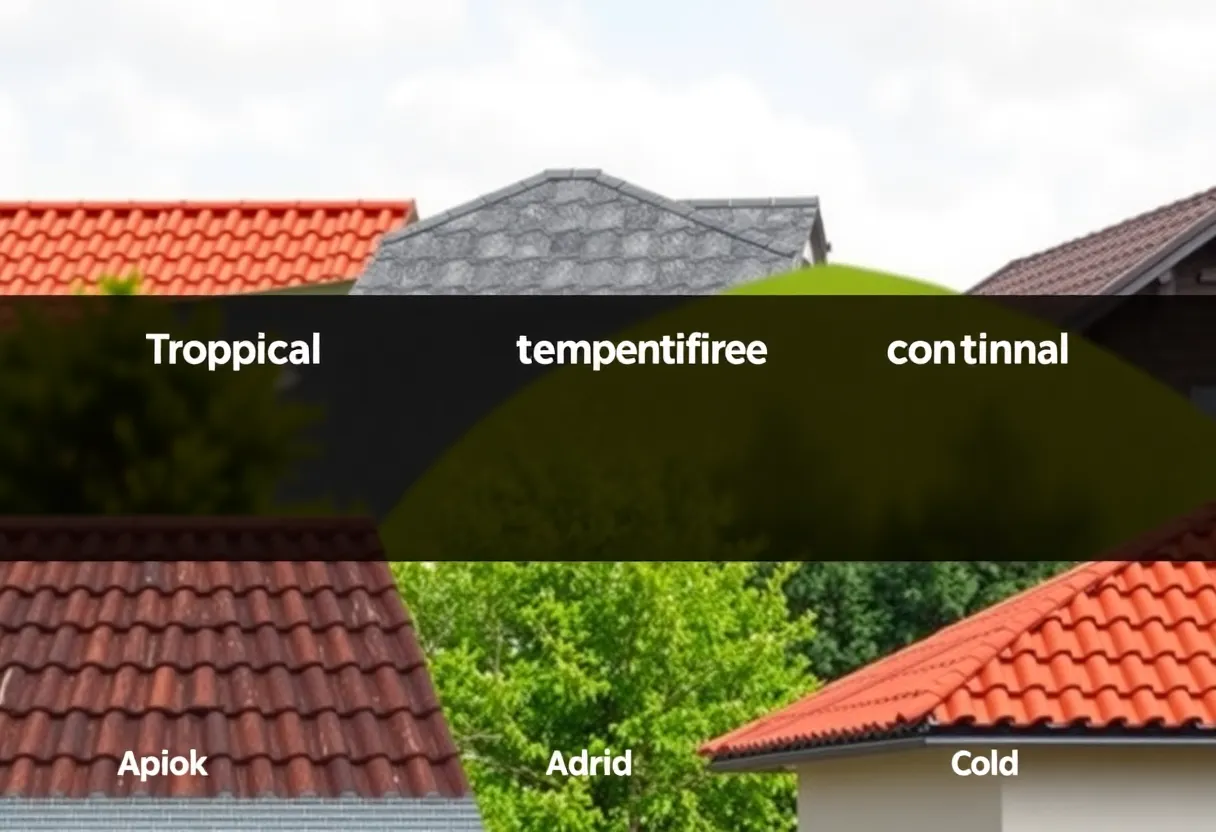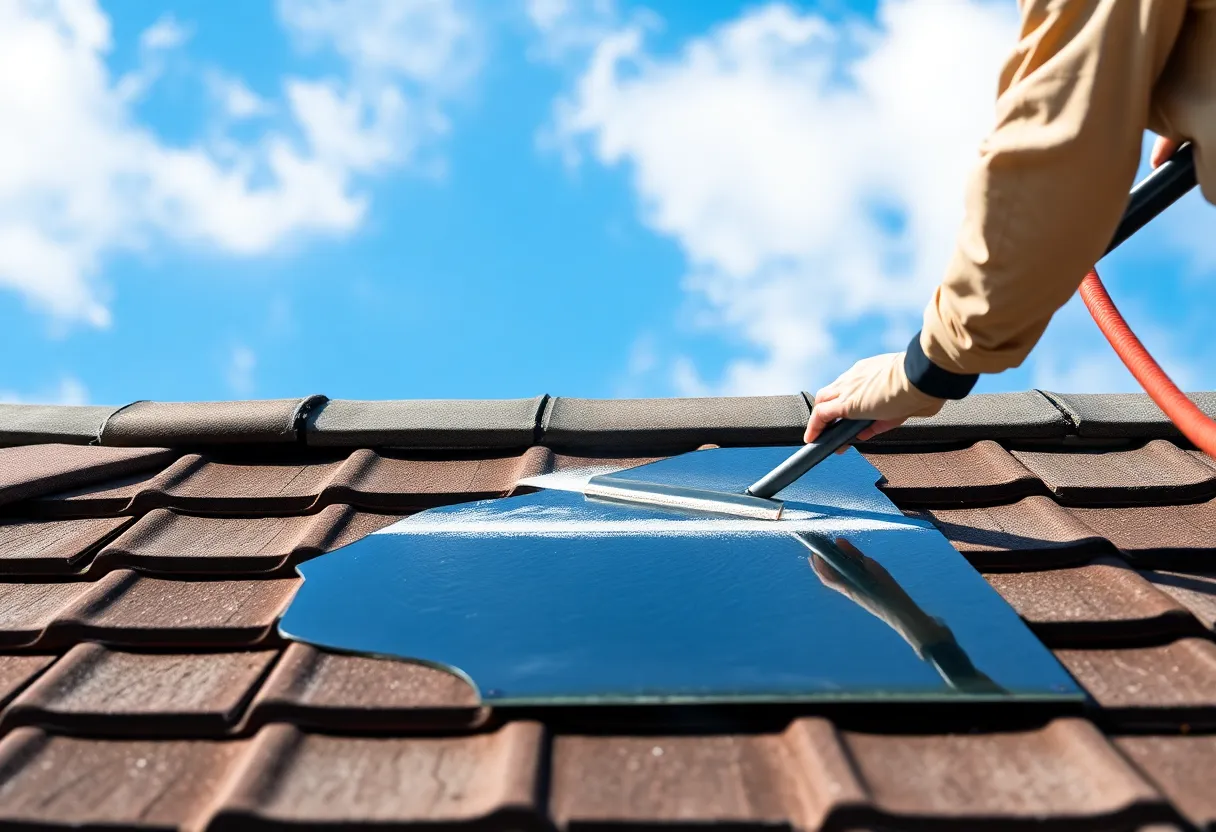How to Determine the Best Roofing System for Your Unique Climate Needs
Your roof is your home’s first line of defense against nature’s elements. Selecting the right roofing system is not just a matter of aesthetics; it is crucial for durability, energy efficiency, and overall comfort. Different climates require different roofing solutions. This article outlines how to determine the best roofing system tailored to your unique climate needs.
Understanding Your Climate Zone
Before diving into specific roofing materials, it’s essential to consider the distinct features of your climate zone. Here are the primary climate categories:
- Tropical: High humidity and significant rainfall
- Temperate: Mild temperatures but varying precipitation
- Continental: Hot summers and cold winters
- Arid: Minimal precipitation and extreme temperatures
- Cold: Snow and ice are predominant
Understanding your climate zone will inform many subsequent decisions regarding your roofing system.
Assessing Your Building Structure
The architecture of your home plays a significant role in choosing an effective roofing system. Important factors to consider include:
- Roof slope: Steeper roofs facilitate water drainage but may require heavier materials.
- Orientation: South-facing roofs can harness sun exposure for energy efficiency.
- Building materials: The material of the walls may affect your choice of roofing.
Every structural element can impact the type of roofing system that will perform best in your specific climate.
Choosing the Right Material
Tropical Climate
In tropical regions, high humidity and significant rainfall are prevalent. Consider these roofing materials:
- Metal roofing: Highly resistant to rust and mold, making it ideal for moisture-rich environments.
- Clay tiles: Excellent at reflecting heat and providing good ventilation.
- Asphalt shingles: Available in moisture-resistant varieties. Choose algae-resistant options to combat mold growth.
Temperate Climate
For temperate regions, varying thermal conditions and precipitation levels require versatile choices:
- Composite shingles: Resistant to algae and provide insulation to handle temperature shifts.
- Slate roofing: Offers longevity and can withstand rainfall while reflecting heat.
Continental Climate
Continental climates face extreme temperature fluctuations. Opt for:
- Metal roofing: Excellent for reflecting sun while enduring snow and ice.
- Asphalt shingles: Available in a variety of styles with good insulation properties.
Arid Climate
In arid regions characterized by extreme heat and minimal rainfall, consider:
- Tile roofing: Clay or concrete tiles are effective at reflecting sunlight.
- Metal roofing: Non-porous and designed to handle temperature extremes.
Cold Climate
For areas that experience heavy snowfall and cold temperatures, suitable materials include:
- Asphalt shingles: Snow-shedding capabilities make them ideal.
- Metal roofing: Its smooth surface prevents snow accumulation.
Energy Efficiency Considerations
Energy costs can rise dramatically depending on roofing choices. Here are key factors when considering energy efficiency in roofing:
- Reflectivity: Materials with high solar reflectance keep homes cooler.
- Insulation: A well-insulated roof retains heat during winter and cool air in summer.
- Ventilation: Adequate ventilation prevents moisture build-up and extends roof lifespan.
Local Regulations and Building Codes
Before making a final decision, check your local building codes. These regulations may dictate what materials and systems are permissible, especially in areas prone to severe weather.
Cost vs. Longevity
Choosing a roofing system also involves weighing cost against expected lifespan:
- Asphalt shingles: Economical but require replacement every 20-30 years.
- Metal roofing: Higher initial cost but can last 40-70 years.
- Slate: High cost but lifespan of over 100 years.
Investing in a more expensive material can prove cost-effective in the long run due to reduced maintenance and fewer replacements.
Maintenance Requirements
Each roofing material has different maintenance needs:
- Asphalt shingles: Regular inspections for missing shingles, algae growth, and leaks.
- Metal roofing: Routine inspections to prevent rust and check for sealant wear.
- Slate tiles: Requires professional inspections to address any cracked tiles.
A proactive maintenance schedule can significantly extend the lifespan of your roof.
Consulting with Professionals
Finally, while this article offers a wealth of information, consulting with roofing professionals can help tailor choices to your specific needs. These experts can assess your unique situation and recommend the best system based on their extensive knowledge.
Conclusion
Choosing the best roofing system for your unique climate needs is a critical decision. Understanding your climate zone, assessing structural elements, selecting the appropriate materials, considering energy efficiency, and staying informed about local regulations can help you choose wisely.
Your roof plays an integral role in your home’s protection and comfort; invest the time and resources needed to ensure it meets your climate’s demands.






